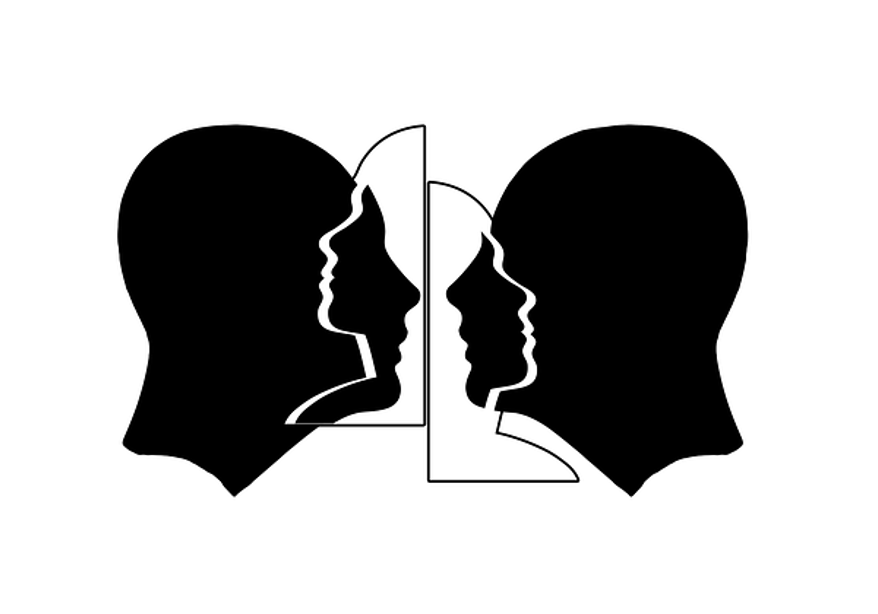In the age of acronyms, texting and social media, being acronym fluent allows for more fluid conversations in the ever merging personal and professional worlds. So, it’s time to DTR. That’s right. Let’s Define The Relationship. 3.8 Billion: That’s how many responses I received in a quick Google search of “your relationship with change.” The internet thought my phrasing was backward and “corrected” my mistake. It didn’t give me exactly what I was looking for; I received over 3.8 Billion responses for “How to deal with changes in your relationship.” What if Google was wrong?
Bear with me here: Let’s replace “change” with “yourself” or “you.” This time I got 1.1 Billion results. This may seem like an unlikely change of phrase. The Oxford English dictionary defines “relationship” as "the way in which two or more concepts, objects, or people are connected, or the state of being connected."
Psychologists agree: All relationships are mirrored by the one you have with yourself.
We can agree that you have a relationship with things, people, circumstances, and more. If your relationship with yourself reflects your other relationships, then the relationship is not just interpersonal, but also with circumstances. Your relationship with change is akin to your relationship with yourself and is limited to the depths to which you are willing to pause and self-assess. Instead of working to navigate and nurture the relationship with external variables, start inward on your relationship with you to have an exponential effect. In other words, how you handle change (and everything else) relies on your relationship with yourself. Google got it right from the jump.
How would you define your relationship with yourself? When something you perceive as unexpected and jarring occurs? How does your mind and body feel? Do you react quickly and lose sight of your future goals at the moment? Are you overcome with emotion, becoming a passenger of resistance, pleading, fear, resentment, anger, and grief? Or do you become a driver of your thoughts, acknowledge those feelings as valid and become a conscious observer of what those feelings are trying to show you about yourself? What about smaller changes? It’s possible you may only realize greater reactions with large changes or obstacles but your relationship with both the small and grand scale disruptions matter equally.
"We don’t naturally fall into good relationships; we create them."
NYT Bestseller, Nedra Glover Tawab
According to the 2022 National Study of Change and Emotion in the Workplace (NSCEW), 66% of Americans believe how they were parented affects their ability to handle change at work. When you think about it, the forming of self happens during our most formidable ages and transfers into every decision and path we pursue. This means molding your relationship with change likely began long before you entered the professional world. You couldn’t choose how you were parented, the subsequent development of self, and the relationship you created with yourself as a result. It’s incredibly powerful to have the self-reflection and awareness necessary to know from where your change habits and reactions stemmed. You can translate the new knowing into a new choice of whether those habits continue to suit you. Were they necessary for safety and survival? How does your relationship with change serve you now?. Ah this point, you do actively choose to either continue that relationship or to change it. It’s never too soon or too late to work on improving the relationship with the only person who will be with you from birth to death: you.
Change is both a noun and verb.
As a noun, change is defined as the act or instance of making or becoming different. As a verb, change is to replace (something) with something else, especially something of the same kind that is newer or better; substitute one thing for (another); make (someone or something) different; alter or modify. Change is a constant; above all else in your personal and professional world. As controlling change is a supernatural power we have yet to unlock, the only thing within your control is your response.
People respond to change in three ways: non-reactive, reactive, proactive, and positive. Non-reactivity does not alter the change itself but blocks you from experiencing it - often due to discomfort, which presents as resistance to acknowledging the change. Accepting change is inevitable is your first step to move towards proactive reactions towards change. Being reactive is an immediate and often emotional response, without much thought or preparation given to a response. This type of response is often equally based on resistance as non-reactive but involves an active resistance rather than passive. These emotions are better put to use in assessment to determine where the resistance is coming from and what they can show you. In a proactive and positive response, you assess your emotions and see the possibilities for growth. The positive outlook simultaneously allows for a grieving process on the thing lost through change but also harnesses the power of what is gained. Instead of managing relationship changes, the focus shifts to your relationship with yourself through the change. Then, no matter where change occurs, you’ve developed the skill to be true to your emotions and heed what courses through you as opportunities to learn new steps relevant to the situation at hand.
It is human nature to avoid change for self-preservation, survival and overall habits. We are creatures of habit for this reason: constant large change is upending and difficult to navigate. The question is not will you encounter change, but how will you interact with yourself during change?








